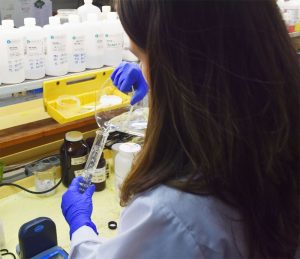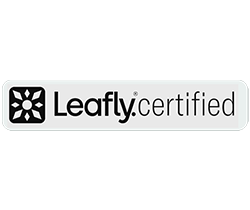 Modern Canna highly recommends that cannabis suppliers and product manufacturers submit samples for potency testing. Acquiring a certificate of analysis is one of the pathways to legitimacy and establishing a trust-factor with your consumers. Potency testing determines the accuracy of what you list on your label. However, how accurate are these accuracy tests? Is there a testing entity that tests the testers?
Modern Canna highly recommends that cannabis suppliers and product manufacturers submit samples for potency testing. Acquiring a certificate of analysis is one of the pathways to legitimacy and establishing a trust-factor with your consumers. Potency testing determines the accuracy of what you list on your label. However, how accurate are these accuracy tests? Is there a testing entity that tests the testers?
How Accurate Is Potency Testing?
First, it should be pointed out that no testing method in the industry is 100% accurate. That is just not possible with our current technology, but the accuracy rate is definitely improving. The good news is that the technology makes leaps and bounds of improvements in a relatively short time span.
Potency Testing Accuracy Put to the Test
To give you a gauge of the reliability of potency testing, two non-profit cannabis groups performed their own investigation, which you can read at length at California Norml. The organizations employed what was termed the Ring Test.
10 cannabis testing labs in two states agreed to participate, though remained anonymous. All 10 labs tested the purity of six samples acquired from the same source. The results were more or less accurate, consistently coming within plus or minus 20% of each other, and often within 10%. The results were also within range. A sample with a 10% THC content, for instance, may yield a range of 8% to 12% among the different participating labs.
It should be noted, however, that there were a few deviations. Several labs had results that deviated more than 25% from the mean results. Three of the 10 labs also had similar deviations on at least half of its tests.
Post-Test Review
What conclusions can be drawn from this? It reveals that while most testing labs are on par, there are occasions when it falls short of expectations.
In the above Ring Test, testing methods utilizing liquid chromatography (LC) and gas chromatography (GC) yielded mostly consistent results among the different testers when sampling raw cannabis.
However, LC and GC produced less consistent results when testing cannabis tinctures. The organizations overseeing the Ring Test concluded that more work needs to be done for making improvements in this area.
Accurate Potency Testing by Modern Canna
The Ring Test was conducted in 2011. As mentioned, testing technology has improved significantly since then, and continues to do so.
At Modern Canna, we are highly confident that our state-of-the-art technology and methodologies are the most up-to-date in the sector. This includes LC and GC testing equipment, both of which are among the most widely implemented in the industry. Our tests specifically detect common toxins prevalent in central Florida, including mold species, lead, metals, and pesticides commonly found in the agricultural industry.
Modern Canna abides by stringent state-level protocols. Strict standard operating procedures minimize discrepancies stemming from human error. See our page on Florida cannabis testing regulations for details on the Florida Statute that governs testing guidelines.
In short, we don’t compromise when quality assurance is at stake.
Put Your Trust in the Accuracy of Our Cannabis Potency Testing
As Florida’s leading cannabis testing lab, we take our reputation seriously. We also care about the integrity of the medical marijuana industry and the well-being of medical and recreational users alike. We adhere to cutting-edge methodologies and the highest cannabis quality control standards to ensure unmatched accuracy. Submit a sample to Modern Canna today for reliably accurate results.
Additional “Potency Testing Accuracy” Resources:
- California NORML, How Accurate Is Cannabis Potency Testing, http://www.canorml.org/news/ringtest.html
- High Times, Marijuana’s Next Billion-Dollar Market: Lab Testing, https://hightimes.com/business/marijuanas-next-billion-dollar-market-lab-testing/


